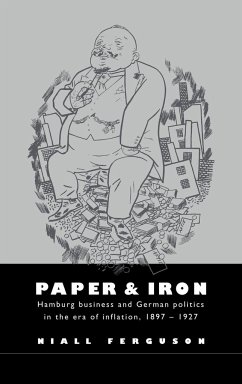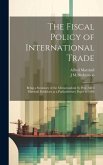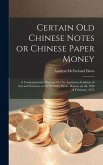Few economic events have had a more profound or enduring impact than the German hyperinflation of 1923, still remembered popularly as a root cause of Hitler's rise to power. Yet in recent years many historians have argued that inflationary policies were, on balance, advantageous to post-1918 Germany, both boosting growth and helping to reduce reparations. The scholarly consensus is that there was no viable alternative to inflation. In Paper and iron Niall Ferguson takes a different view. Focusing on the influential Hamburg business community, he exposes the flaws in the contemporary justifications for inflationary policies. The inflation, he argues, did severe damage to the German economy by eroding the foundations of bourgeois society and discrediting Weimar's welfare state. Above all, it did nothing whatever to reduce reparations. Alternative policies might in fact have stabilised the German currency in 1920. To explain why such policies were not adopted, the author points to long-term defects in the political economy of the Reich. He suggests that there was a thirty-year 'era of inflation' after 1897 in which the inadequacy of the Reich's fiscal and monetary institutions allowed economic interest groups to wield excessive power. This internal imbalance of power was reversed only in the 1930s. Thus Paper and iron reveals not only the Wilhelmine origins of Weimar's failure; it also casts new light upon the origins of the Third Reich.
Hinweis: Dieser Artikel kann nur an eine deutsche Lieferadresse ausgeliefert werden.
Hinweis: Dieser Artikel kann nur an eine deutsche Lieferadresse ausgeliefert werden.








